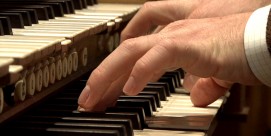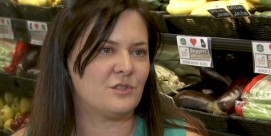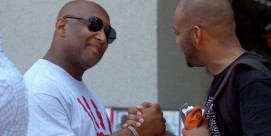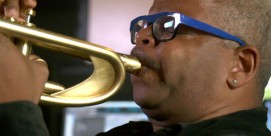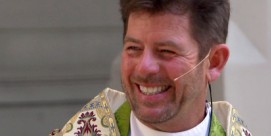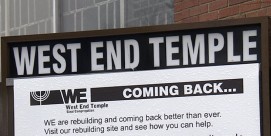In This Episode << SLIDE LEFT TO SEE ADDITIONAL SEGMENTS
D’Iberville Rebuilding Celebration
BOB ABERNETHY, anchor: The dollar figures on charity do not begin to measure the hours and skills volunteers give. We have two glimpses today of both kinds of help, both from the Gulf Coast.
In D’Iberville, Mississippi, near Biloxi, almost three years after Katrina, volunteers from around the country celebrated the rebuilding of nearly a thousand homes. And in New Orleans, church members who had been helped after Katrina by volunteers from the Midwest began returning the help to those hit hard by the floods.
 D’Iberville house |
A group at the Church of the Annunciation packed up and headed for Quincy, Illinois, to help flood victims on Wednesday morning. The Episcopal Diocese of Quincy was one of their most generous supporters after Hurricane Katrina.
JEAN SELDERS (Church of the Annunciation): I helped with the Diocese of Quincy to make relief packets for the people of New Orleans. And now I here making relief packets in New Orleans for the people of Quincy. So I’ve come full circle.
ABERNETHY: The New Orleans church volunteers packed up care packages for people flooded out of their homes. The church also plans to send groups of volunteers to Quincy to help repair flood damage.
Meanwhile, in D’Iberville, Mississippi, the D’Iberville Volunteer Foundation reached its goal of rebuilding almost 1,000 homes. This past weekend they said goodbye for the final time to volunteers from around the country who worked to rebuild their community.
Dr. ED CAKE (D’Iberville Volunteer Foundation, speaking to volunteers): Thank you for the love. Thank you for the prayers, especially. Thank you for the support, and we could not have done it without you all.
ABERNETHY: D’Iberville had 8,000 people before Katrina. After the storm, 2,000 fled, but two college professors stayed, and they organized 7,000 volunteers, many of whom returned three times or more to put up rafters and install drywall and electricity.
Dr. IRENE MCINTOSH (D’Iberville Volunteer Foundation): There’s a grace to receiving that I think is more difficult than the grace of giving, and in that grace of receiving — and our citizens know how to do it better than most people — they love to reach out. They hug. They say “thank you” a million times.

